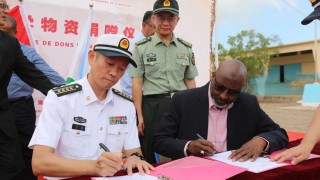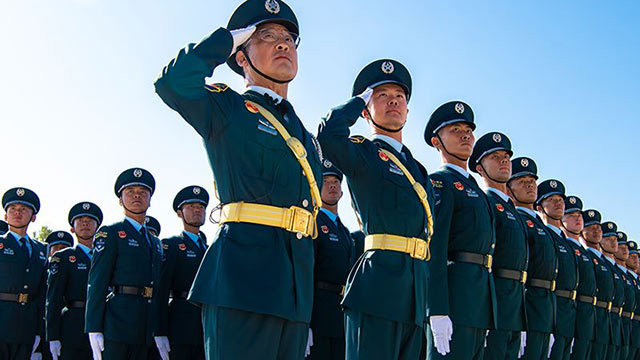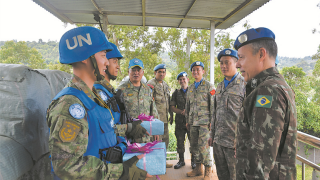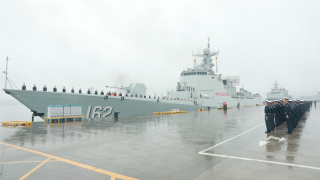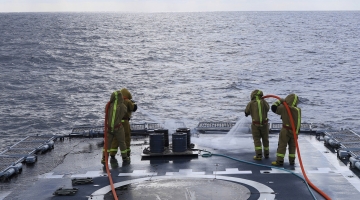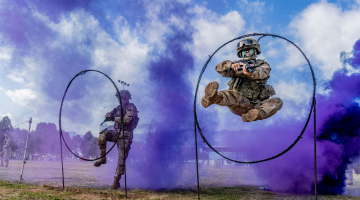By Li Shuo
The first joint air exercise between Japan and India ended on January 26, pushing bilateral defense relations to a higher level. Recently, while deepening its military integration with the US, Japan has continuously established military cooperation mechanisms with Australia, India, the UK, France, Germany, the Philippines and other countries that originally only existed between allies. Japan also made clear provisions in three security documents including the National Security Strategy issued in mid-December.
According to the National Security Strategy of Japan, Japan should further promote efforts to realize a “Free and Open Indo-Pacific (FOIP)” by deepening cooperation with the so-called like-minded countries through the Japan-US alliance as a cornerstone and through efforts such as the Japan-US-Australia-India (Quad) partnership. At the same time, Japan shall vigorously build a multilayered network among its ally and like-minded countries, expand it, and strengthen deterrence . In the future, Japan will actively carry out bilateral and multilateral security dialogues, bilateral training and exercises, and extensively conclude information protection agreements , Acquisition and Cross-Servicing Agreement (ACSA) and Reciprocal Access Agreement (RAA), speed up the research and development of military equipment, promote the transfer of defense equipment and technology, support other countries in building naval and air reconnaissance and early warning capabilities, and carry out strategic communication activities.
In addition, Japan's National Defense Strategy outlines three main defense goals, the second of which is to work with allies and so-called like-minded countries to jointly prevent attempts to unilaterally change the status quo by force. The strategy also lists ways to achieve the three defense goals. First, enhance the overall defense system while thoroughly strengthening the defense forces. Second, further strengthen cooperation with the US and enhance the deterrent and response capabilities of the Japan-US alliance. Third, strengthen cooperation with so-called like-minded countries and jointly maintain a free and open international order. It can be seen that Japan has taken the construction of a generalized military alliance as an important means of intervening in international security affairs, stirring up the security situation in the Asia-Pacific region, increasing international political influence, and realizing its ambition as a military power.
Japan's new National Defense Strategy has formulated different plans for different countries and regions in terms of specific measures to build a generalized military alliance. For example, Japan regards Australia as a special strategic partner and will build a close military cooperative relationship with Australia that is second only to the Japan-US alliance. Japan will build a special strategic global partnership with India, and promote bilateral cooperation in maritime security, equipment technology, and military exercises. Japan will strengthen the capability to jointly deal with issues in the so-called “Indo-Pacific region” and even around the globe with countries such as Britain, France, Germany, and Italy, build a multilayered dialogue mechanism, promote the development of next-generation fighter jets, exchange ships and military aircraft, and strengthen cooperation on security issues such as intelligence reconnaissance against the DPRK and strikes against pirates of Somalia. Japan will enhance its capability to respond to "Indo-Pacific" security issues in coordination with Canada and New Zealand. Japan will strengthen cooperation with the Nordic, Central and Eastern European countries, and the Baltic countries in cognitive warfare, network security, and hybrid warfare. Japan and Southeast Asian countries will carry out dialogues at different levels, send ships and military aircraft to dock and transit, promote the export of weapons and equipment, and support military capacity building. Japan will support Mongolia's military capacity building, and strengthen joint military exercises and equipment technology cooperation. Japan will develop military cooperation with Central Asian countries and exchanges. Japan will work with the US, Australia, Britain, and other countries to support the construction of coastal defense forces and other military capabilities of Pacific Island countries. Japan will strengthen military cooperation and exchanges with countries along the coast of the Indian Ocean, in the Middle East and Africa.
While improving its own military strength, Japan has also continued to strengthen military cooperation with so-called like-minded countries based on the Japan-US alliance, and its defense relations with some countries have even reached a level of closeness between allies. This has exposed its ambition to become a military power and to intervene in global security affairs, which deserves close attention and high vigilance.
